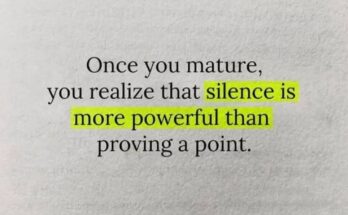In an era where wealth inequality is reaching unprecedented heights, the priorities of society are often called into question. While billionaires accumulate vast fortunes, national parks and the people who protect them struggle for funding, recognition, and support. To some, it may seem radical to place greater importance on preserving public lands and supporting the rangers who maintain them than on celebrating the ultra-rich. But if that makes me radical, then I wear that label with pride. The natural beauty of our national parks and the selfless dedication of those who safeguard them are worth far more to me than the latest billionaire’s yacht, space venture, or stock market exploits.
The Value of Our National Parks
National parks are among the greatest treasures of any country. They preserve natural wonders, protect wildlife, and offer a space where people can reconnect with nature. The United States, for example, is home to some of the most famous national parks in the world, from Yellowstone and Yosemite to the Grand Canyon and the Great Smoky Mountains. These parks provide not only recreational opportunities but also critical environmental benefits, serving as carbon sinks, habitats for endangered species, and bastions of biodiversity.
Unlike the fortunes of billionaires, which often exist only in the realm of numbers on financial statements, national parks offer tangible, irreplaceable beauty. A billionaire’s wealth may buy them power and influence, but it cannot replace the majesty of a towering sequoia, the serenity of a pristine lake, or the exhilaration of standing atop a mountain peak.
The People Who Protect Our Parks
Behind every well-maintained trail, every successful wildlife conservation effort, and every safe visitor experience stands a dedicated workforce of park rangers, conservationists, and volunteers. These individuals commit their lives to preserving our national heritage, often working in difficult conditions for modest pay. Park rangers perform a variety of roles, from law enforcement and emergency response to ecological research and educational outreach.
Despite their importance, many of these professionals are overworked and underpaid. Federal and state budgets for national parks are frequently cut, forcing staff to do more with less. Some rangers live in substandard housing, face dangerous situations with limited resources, and struggle with seasonal job instability. Meanwhile, billionaires receive tax breaks and subsidies that allow them to expand their fortunes with minimal accountability.
The Growing Threats to National Parks
National parks are under constant threat from environmental degradation, budget cuts, and political neglect. Climate change is altering landscapes at an alarming rate, leading to more frequent wildfires, rising temperatures, and habitat loss. At the same time, overcrowding and underfunding place immense strain on park infrastructure. Roads, visitor centers, and trails require maintenance, but funding shortfalls mean that necessary repairs are often delayed or ignored altogether.
Meanwhile, private interests often seek to exploit these lands for profit. Oil and gas drilling, mining, and real estate development threaten to encroach upon or even destroy natural habitats. Without strong protections and adequate funding, these cherished public lands could be irreparably damaged.
The Obscene Wealth Gap
While our national parks struggle, billionaires continue to amass wealth at an astonishing rate. In the last few decades, the gap between the ultra-rich and the rest of society has widened significantly. A handful of individuals now control more wealth than entire nations, while millions of people—including those who work tirelessly to protect our environment—struggle to make ends meet.
Billionaires often justify their wealth by claiming they create jobs, drive innovation, or contribute to philanthropy. However, their charitable giving often pales in comparison to the wealth they hoard, and their business practices frequently contribute to worker exploitation, environmental destruction, and social inequality. Meanwhile, national parks and the people who protect them must rely on inadequate government funding and donations from everyday citizens to continue their important work.
Reassessing Our Priorities
As a society, we must ask ourselves: what do we truly value? Do we idolize billionaires simply because they have more money than we could ever imagine, or do we recognize the worth of things that cannot be measured in dollars? A billionaire’s net worth may rise and fall with the stock market, but the splendor of a national park and the dedication of those who protect it are priceless.
If we redirected even a fraction of the resources that currently go into tax breaks for the wealthy toward funding national parks, we could make a meaningful difference. Improved wages and benefits for park employees, better infrastructure and maintenance, expanded conservation efforts—these are all achievable goals if we choose to prioritize them.
A Call to Action
Caring more about national parks and park rangers than billionaires is not radical—it is a rational, moral stance that reflects a commitment to preserving our shared heritage. We must advocate for increased funding for public lands, fair wages for those who protect them, and policies that put environmental conservation ahead of corporate greed.
Here are some ways we can take action:
- Support Conservation Organizations – Donating to and volunteering with groups dedicated to protecting national parks can make a real difference.
- Vote for Pro-Environment Policies – Electing leaders who prioritize environmental protection and responsible funding for national parks is crucial.
- Raise Awareness – Educating others about the challenges facing national parks and the people who care for them can help shift public perception and policy.
- Visit National Parks Responsibly – By following Leave No Trace principles, respecting wildlife, and supporting local park economies, we can contribute to the preservation of these lands.
- Challenge Wealth Inequality – Advocating for fairer tax policies and economic reforms can help ensure that the wealthiest individuals and corporations contribute their fair share to society.
Conclusion
If believing in the protection of national parks and the well-being of those who dedicate their lives to them is radical, then I proudly accept that label. Our national parks are more than just scenic getaways—they are essential to our environment, our cultural identity, and our collective well-being. They deserve our care, our resources, and our unwavering support.
Billionaires may continue to chase ever-greater wealth, but the grandeur of nature and the dedication of those who protect it will always matter more to me. It’s time we realigned our priorities and recognized that the true riches of the world lie not in bank accounts, but in the mountains, forests, rivers, and wildlife that make up our national parks.


